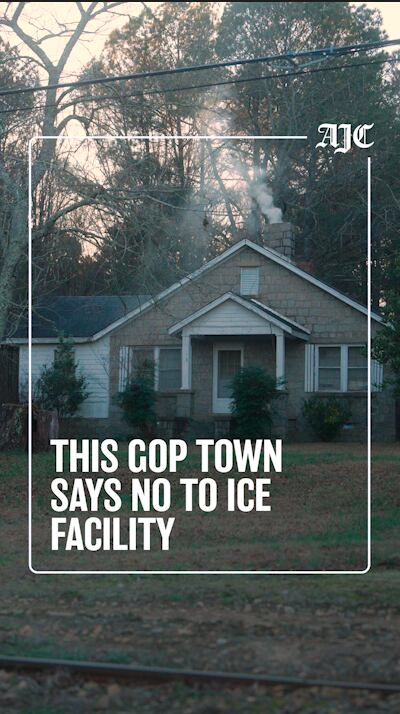Georgia Methodists approve reparations plan to support Black congregations

In 2022 the North Georgia Conference of the United Methodist Church held its annual meeting in Athens with the theme “A Place for You at The Table.”
Grabbing the most attention was a vote on the disaffiliation of 70 churches that wanted to leave the denomination.
What got less focus was Red Oak United Methodist Church, a small historically Black congregation in Griffin that closed earlier that year as membership fell. People moved away, found larger church homes or died.
Membership dwindled until it was no longer sustainable.
The church’s peril sparked a 45 minute discussion on the conference floor jumped started by the Rev. Vance P. Ross, the pastor of Central United Methodist Church in Atlanta. The Conference addressed. the injustices faced by people of color who, despite that, still remained in the denomination.
Then Bishop Sue Haupert-Johnson acknowledged that the conference had failed to recognize and put resources into the predominantly Hispanic and Black communities and churches in North Georgia.,
That led to a motion asking conference leadership to consider a way to honor Red Oak.
And so on Friday, it happened.
During the conference’s annual meeting Red Oak was honored. Voting attendees approved four recommendations from the 16-member reparations task force to address ways racism and ways to support historically Black churches and others of churches of color.
Recommendations approved
- The proceeds of the eventual sale of the property of the former Red Oak UMC-Griffin will be granted to another Black United Methodist Church of the choosing of the former members of the closed church. This honors the vote of the 2022 Annual Conference. The recommendation prevents the proceeds of the sale of the property from going into the normal process that would ultimately take from the black church and spread the funds more broadly.
- Encouraged Legacy Mergers with another church of color for historic churches of color that are facing potential closure to carry on their legacy of ministry and discipleship. .
- Intercultural training for those who serve on conference boards, teams, councils, commissions, and committees. The training will be determined by the 16 Conference Commission on Religion and Race and funded through the budget for Inclusion and Advocacy.
- Intercultural training for conference staff and the board of ordained ministry.
The task force also created a series of videos showing stories about racism and ways the conference has moved to rectify those injustices.
“We wanted to take a comprehensive look at the legacy of historically Black congregations and how to honor that legacy and not dilute it,” said Nate Abrams, a lay person and member of Bethany United Methodist Church in Smyrna.
Rev. Brian A. Tillman, director of Inclusion and Advocacy for North Georgia Conference of the United Methodist Church said the aim of the task force is to heal and repair the harms caused by racism in the conference.
“Reparations is not a blank check. " It can and often does involve money but you cannot compensate a wound away,” he said.
“The fact that black churches were started by people who were formerly enslaved, built churches with their own hands, on lands that they often had to buy from their former enslavers, and challenges makes it an injustice for the proceeds of the sale of the property to benefit anyone other than other Black churches,” Tillman said.
Pamela Perkins Carn, of College Park, is chair of the Black Methodists for Church Renewal for the conference.
She said Black churches have been an integral part of the denomination and the communities they serve.
“They have stayed. No matter what was going on with the denomination Black churches have stayed - segregation, structural racism - Black churches have stayed,” she said. “They have been part of the denomination financially, spiritually and emotionally.”
She grew up African Methodist Episcopal and later became United Methodist.
Church, though, was an important part of her family and it’s where she had her grounding.
Like Carn, Scarlett K. Dukes of Atlanta grew up in a Black church. Her parents, grandparents, aunts, uncles, siblings and cousins all attended the same small rural church in Georgia. Church members helped others, provided a place to stay for factory workers and visitors, who couldn’t stay in area hotels because of their race.
Dukes now attends Central United Methodist Church.
But she remembers her first church.
That church “made me who I am,” said Dukes.
During the three day meeting, which ends on Saturday the conference gave the OK Friday for two Augusta churches to leave the denominational fold.
The two churches, Trinity on the Hill United Methodist Church and Mann-Mize United Methodist Church, had earlier filed a lawsuit to restart the disaffiliation process after conference leadership halted the process last year. A Columbia County Superior Court judge ruled in favor of the Augusta churches.
Their lawsuit was separate from one filed by 185 other North Georgia churches who also want to disaffiliate. A Cobb County judge ruled last month in the second lawsuit, saying the conference could not stand in the way of the churches’ plans to hold votes on leaving. The vote for the 185 churches will be held at a special meeting in November.
Churches seeking to leave the denomination fear it will become too progressive, although at its 2019 General Session, delegates voted to continue to ban same sex marriages and ordination of non-celibate gay clergy.
Return to the Atlanta Journal-Constitution for updates and on site coverage.



